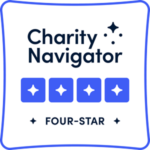
Authentic art-making opportunities provide a safe space for language learners to develop their voice and validate their choices in a meaningful way. The structure of these opportunities, however, needs to be supported—especially for language learners at the lower levels of proficiency—and include appropriate scaffolds for their comprehension and production of English.
While learning to work and think like an artist, students use language to:
Understand the structures, principles, concepts and vocabulary of the art form
Brainstorm ideas and make artistic choices
Explain their artistic choices to others
Describe what a work of art communicates to them
Learning Environments
Language learning takes place within a context that is either basic or complex, and either supported or unsupported. Cummins’ four-quadrant paradigm shows how the context creates an environment for learning that enhances or hinders language development, depending on the complexity of the language needed to achieve the task and the support provided to accomplish the task.
Language Demands for Working Like an Artist
Collaboration in art making requires higher level thinking and therefore requires access to higher levels of language.
Making Strategic Instructional Choices
Making strategic choices for delivery of supports for MLLs can help them increase comprehension and maximize language production regardless of curriculum content.
Proficiency Levels
Understanding the characteristics for each proficiency level and realistic expectations for language production is key to properly support instruction.
Language Objectives
Language objectives are essential for every lesson to support language development. Keeping these objectives Purposeful, Intentional and Explicit helps students become aware of and use new language structures.
Thinking Skills Built by Working Like an Artist
The cognitive skills required for art making fall into the category of Creating described in Bloom’s Taxonomy. Discussions around art making reflect the highest levels of the Depths of Knowledge (DOK).
8 Traits of a Multilingual Supportive Lesson
While good teaching practice impacts all learners, specific considerations are necessary to enhance instruction for MLLs. We have identified these as the 8 Traits of a MLL supportive lesson.
Academic Languge
Academic language encompasses not only complex content specific words, but also academic language functions, multiple meaning words, high-frequency academic words, and syntactical and grammatical complexity.
Communicative Competence
Language is complex; it involves more than simply the knowledge of words. The paradigm of Communicative Comptence describes the complexity of language acquisition to help educators support its development in MLLs.

